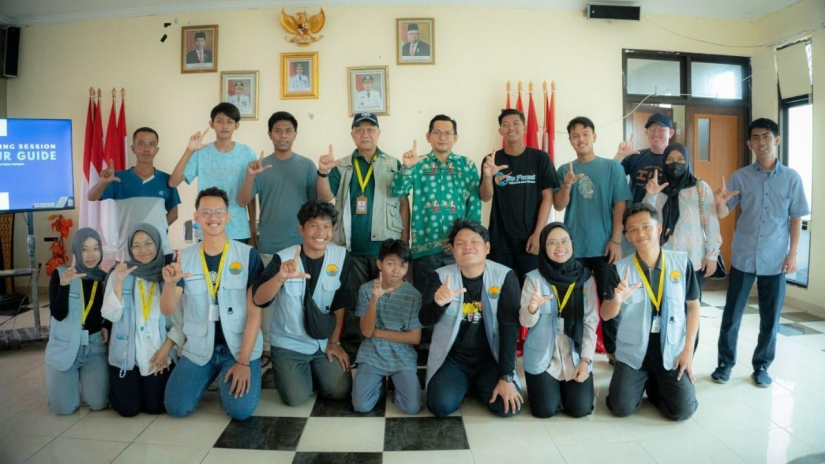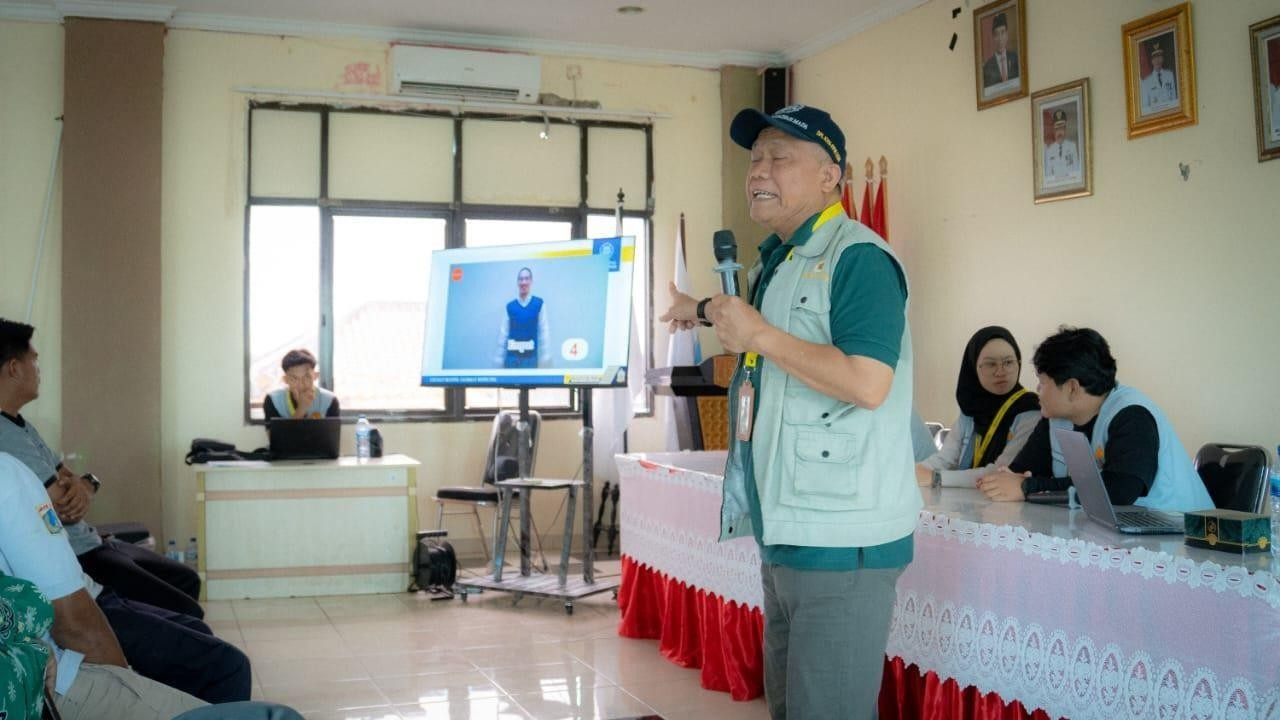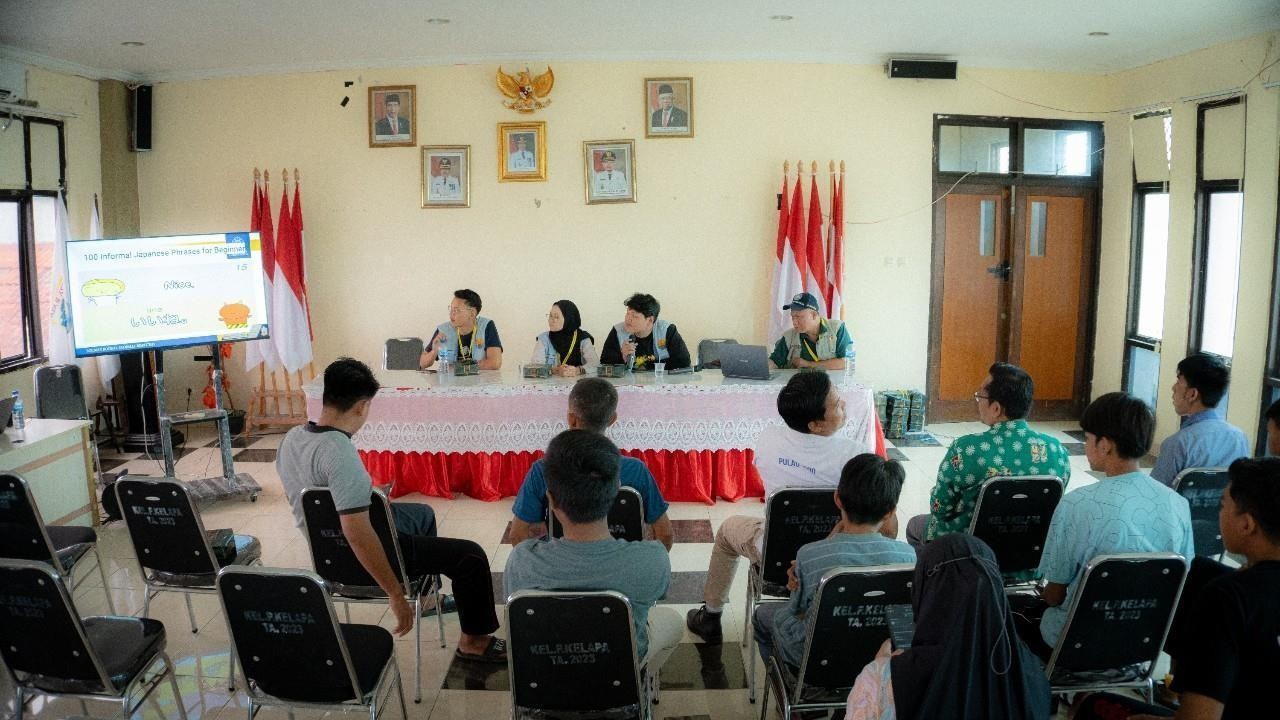
On August 8, 2024, Kelapa Island Village Hall hosted an exciting event aimed at introducing basic Japanese language skills and Japanese cultural insights to POKDARWIS members from Kelapa Island Village and Harapan Island Village, located in North Thousand Islands Sub-district, Kepulauan Seribu Regency.
This initiative is in line with the Sustainable Development Goals (SDGs), especially those focusing on income, basic education, local cultural diversity, education for sustainability, and foreign cultures.
The event began with a warm welcome from local government officials, who emphasized the importance of cultural exchange and education in building understanding and cooperation among diverse communities. They highlighted that learning a new language not only improves communication but also opens up new economic opportunities, thus contributing to increased income levels for participants.
Participants were introduced to basic Japanese phrases and vocabulary commonly used in daily conversation. The language instructor, a teacher of Japanese language and culture, uses interactive methods to engage the audience, making the learning process fun and effective. This approach not only facilitates language acquisition but also encourages participants to appreciate the nuances of Japanese culture.
In addition to language lessons, the event featured presentations on various aspects of Japanese culture, including traditional customs, characteristics of Japanese people, and others. Participants were fascinated by the rich cultural diversity that Japan has to offer, which was shown through videos and live demonstrations. This segment of the program aimed to foster a deeper understanding of cultural diversity and its significance in promoting global harmony.

Presenters emphasized the importance of education for sustainability, noting that understanding different cultures can lead to more sustainable practices in local communities. By learning about Japan’s approach to environmental conservation and sustainable living, participants were encouraged to reflect on their own practices and consider how they can integrate similar values into their daily lives.
During the presentations, participants engage in group activities that allow them to practice their newly acquired language skills. These activities not only reinforce their learning but also promote cooperation and collaboration among community members. The sense of community that developed during these exercises highlighted the success of the event in building community bonds.
The introduction of Japanese language and culture is seen as a stepping stone to improving the educational landscape in the area. By providing access to basic education in a foreign language, the initiative aims to empower individuals and equip them with skills that are increasingly valuable in an increasingly globalized world.
Furthermore, the event serves as a platform to discuss the potential economic benefits of learning Japanese. With Japan becoming an important player in the global economy, language proficiency can open up job opportunities in various sectors, including tourism, trade, and international relations. This aspect of the program was very appealing to participants, many of whom expressed interest in pursuing further language studies.
In conclusion, the introduction of Japanese language and culture at Kelapa Island Village Hall was a great success. The event not only provided valuable educational content but also presented cultural diversity and encouraged community engagement. As participants left the hall, they took with them not only new language skills, but also a greater appreciation of the richness of Japanese culture and its relevance to their own lives.
The event reflects the local authority’s commitment to promoting education for sustainability and cultural understanding, paving the way for future initiatives that will continue to enrich the community and contribute to the achievement of the Sustainable Development Goals.


